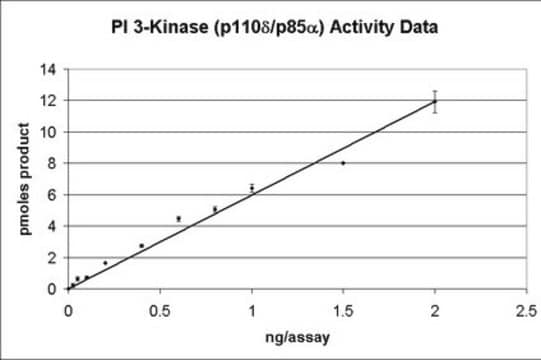H2.35
94050407, mouse liver, Epithelial
Iniciar sesiónpara Ver la Fijación de precios por contrato y de la organización
About This Item
UNSPSC Code:
41106514
Productos recomendados
product name
H2.35, 94050407
biological source
mouse liver
growth mode
Adherent
karyotype
Not specified
morphology
Epithelial
products
Not specified
receptors
Not specified
technique(s)
cell culture | mammalian: suitable
shipped in
dry ice
storage temp.
−196°C
Cell Line Origin
Mouse Hepatocyte, SV40 (tsA255) transformed
Cell Line Description
From a primary hepatocyte culture of 6 week old female BALB/c mouse transformed with tsA255 (temperature-sensitive mutant of SV40 virus). H2.35 is temperature sensitive for expression of serum albumin mRNA. During routine propagation at 33°C it exhibits extremely low levels of albumin transcription and mRNA, while at the restructure temp of 39°C albumin mRNA increases 100 fold if the cells are grown in serum free medium on a collagen substratum. Undergoes morphological changes in response to extracellular matrix gel substrata, albumin gene transcription is induced. Liver-enriched transcription factors are induced in serum-free medium and on collagen gels. The cells should be handled under laboratory containment level 2.
Application
Provides modal system for studying hepatocyte differentiation because some hepatocyte phenotypes are inducible in the cells. Transfection recipient for assays of genetic regulatory sequence function for liver genes that do not function in other cells.
Culture Medium
DMEM (containing 1g / l glucose) + 2mM Glutamine + 250nM Dexamethasone (DXMT) + 4% Foetal Bovine Serum (FBS).
Subculture Routine
Split sub-confluent cultures (70-80%) 1:6 to 1:10 i.e. seeding at 2-4x10,000 cells/cm2 using 0.25% trypsin or trypsin/EDTA; 5% CO2; 33°C.
Other Notes
Additional freight & handling charges may be applicable for Asia-Pacific shipments. Please check with your local Customer Service representative for more information.
Certificados de análisis (COA)
Busque Certificados de análisis (COA) introduciendo el número de lote del producto. Los números de lote se encuentran en la etiqueta del producto después de las palabras «Lot» o «Batch»
¿Ya tiene este producto?
Encuentre la documentación para los productos que ha comprado recientemente en la Biblioteca de documentos.
Nuestro equipo de científicos tiene experiencia en todas las áreas de investigación: Ciencias de la vida, Ciencia de los materiales, Síntesis química, Cromatografía, Analítica y muchas otras.
Póngase en contacto con el Servicio técnico



